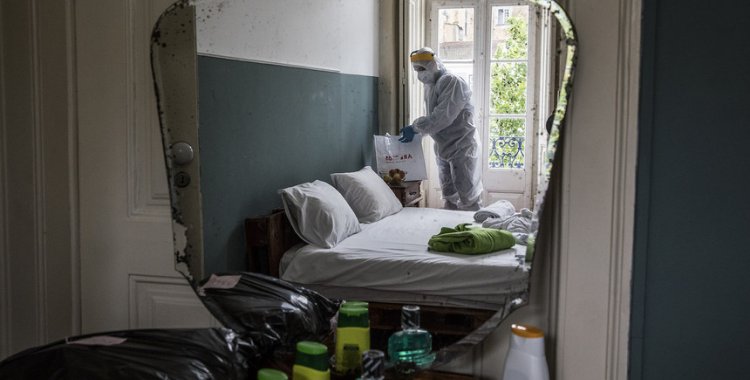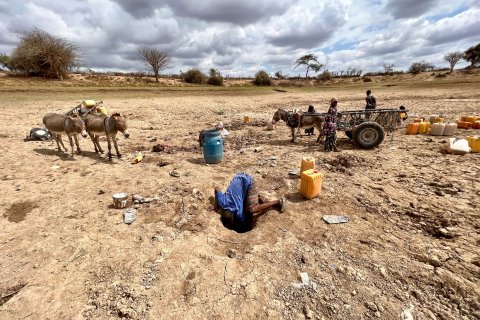"It is very difficult to isolate in these conditions. People are afraid and try to be careful, but they end up huddled and do not always have money for masks," the secretary general of the Association of Angolan Patients in Portugal (ADAP) told Lusa. Vitorino Leonardo.
This Angolan has lived in Portugal for 12 years, where he arrived to undergo hemodialysis treatment due to kidney disease, being housed in a room he shares with his family.
However, there are dozens of Angolans who, unable to afford the cost of housing, live in these two pensions in Lisbon, paid for by the Angolan State, where they eat one meal, the only one they manage to make each day.
The subsidy they receive from the Government (around seven euros a day) for this travel for health reasons rarely amounts to minimum expenses and in recent years there have been significant delays that have already led these patients to carry out several protests in front of the Embassy of Angola, in Lisbon.
Currently, according to Vitorino Leonardo, the delay in payments is around four months, but at least they are still entitled to a daily meal at the pension, which, despite much criticism, helps. This single meal was suspended a few months ago by the owner, who was already delaying payment for several years.
Under the agreements between Portugal and Angola, Angolan citizens with pathologies for which the national health system does not respond - namely cancer, heart and kidney diseases, which require hemodialysis, and some surgeries - are transferred to Portuguese health services .
However, in some cases the treatments last for years and due to health problems these Angolans are prevented from working, depending on their stay in pensions, the subsidy and help with eating or paying for medicines.
Many of them are currently turning to charities to obtain more food and medicines.
The situation worsened with the arrival of the covid-19 pandemic which, due to the unemployment it has caused, prevents many families and friends from helping these patients, as they used to do.
The reflexes extend to treatments that, as has happened to all users of the National Health Service (SNS), are being postponed, along with exams, consultations and even surgeries.
"We understand that everything is difficult for everyone and that hospitals are unable to deliver. And that in some cases it is better to stay home than to go to hospitals because of the risk of infection," said Vitorino Leonardo.
The problem is aggravated inside pensions, where more people stay for longer, without the necessary distance. And so are dozens of men, women and children.
Vitorino Leonardo said that these patients are very afraid of becoming infected, even because of their health problems that make them at high risk.
With no gel or disinfectant material available, they purchase these products and masks whenever the money arrives.
"Now, for example, as they received the subsidies in arrears recently, many immediately tried to buy masks. But when they finish, how are they going to buy?", He asked.
According to Vitorino Leonardo, cases of covid-19 have been recorded in these pensions and the fear is constant.
In 2019, Angola transferred 43 patients to Portugal under the cooperation agreements, through which it ensures accommodation and a subsidy for patients and the expenses of the Portuguese SNS. In 2018, 123 patients had come from Angola.
Between 2016 and 2019, the SNS of Portugal treated 8344 patients from Portuguese-speaking African countries, according to data from the Directorate-General for Health (DGS), advanced to Lusa.
The most sought after specialties are cardiology, oncology, ophthalmology, pediatrics, urology, otolaryngology, general surgery and pediatric surgery, orthopedics and neurosurgery.
International cooperation agreements in the health field aim to ensure, under the same conditions as national citizens, the medical assistance of patients sent by PALOP. In Portugal, they find hospital and outpatient health care in the NHS, for which the health system of the country of origin does not have the technical capacity to provide them.
To receive treatment in Portugal, these patients must be approved by the National Medical Board or by the competent health authority of the respective country of origin.







